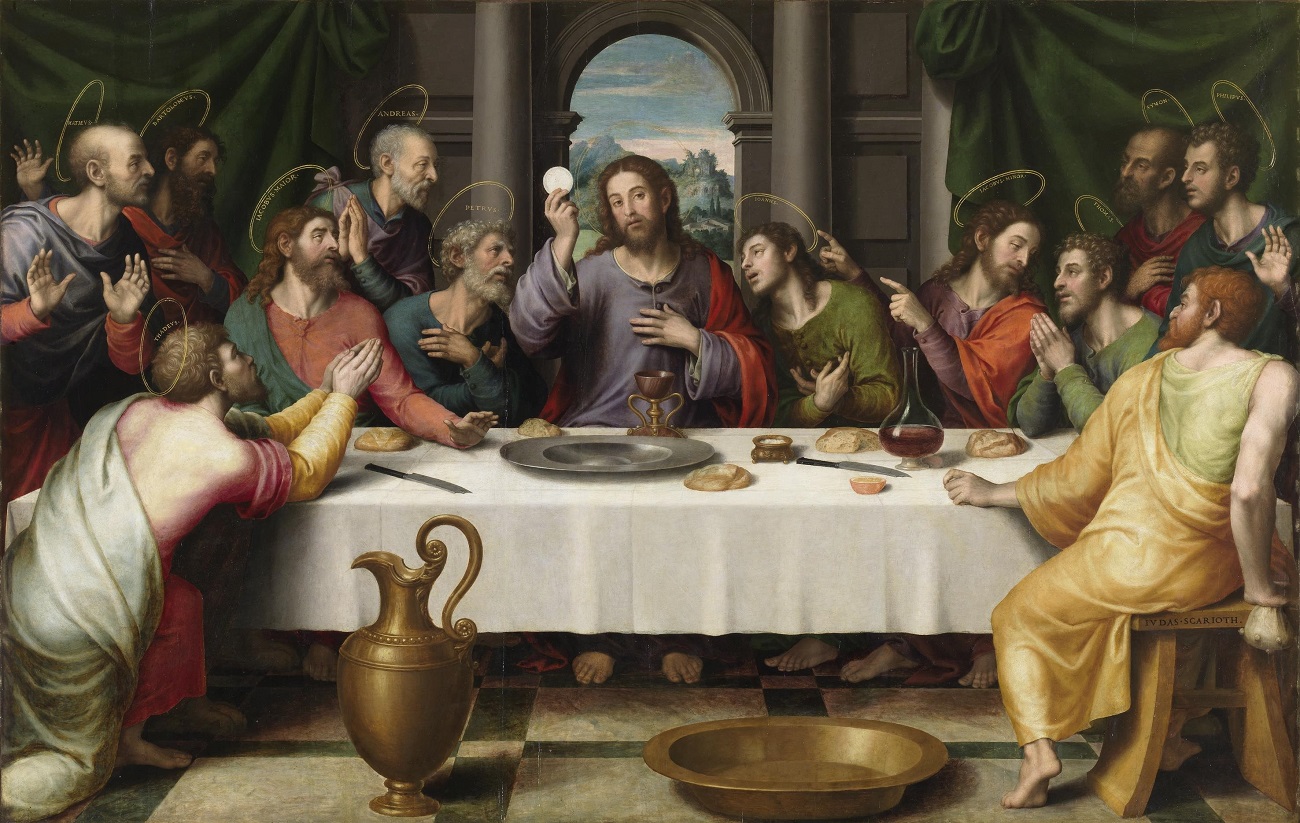By Vir Christi
Corpus Christi is one of the great feasts that the Church in her wisdom gives us after the conclusion of Easter. Many homilies on Corpus Christi will focus on the institution of the Eucharist. And they should! The Eucharist is the great sacrament of unity in the Church. But what is that unity supposed to look like?
What that Unity Is
In the Gospel of John, Jesus in His prayer to the Father mentions unity twice. The first time He mentions it is with regards to the Eleven: “Holy Father, protect them in Your Name that You have given Me, so that they may be one, as We are One.” (John 17:11) Then He brings it up again a short while later, this time in reference to all those who will be converted through the ministry of the apostles: “I ask not only on behalf of these, but also on behalf of those who will believe in Me through their word, that they may all be one. As You, Father, are in Me and I am in You, may they also be in Us, so that the world may believe that You have sent Me.” (John 17:20-21)
As We are One. That turn of phrase can be overlooked when reading through this prayer that Jesus offers, for the sake of focusing on the “they may be one” aspect of it. Why is that turn of phrase important? Because Jesus does not just want His disciples unified like a random collection of strangers. He wants them so intimate that they mirror the life of the Trinity. This is prayer with a magnitude beyond the scope of human comprehension!
But Our Lord does not leave it there. When He prays for the future converted souls, He adds an additional component. May they also be in Us, so that the world may believe that You have sent Me. Jesus is not just saying that He desires all of us to be caught up in the life of the Trinity. He wants us caught up in the Trinity so profoundly that it fundamentally transforms our lives and brings the entire world to belief in God’s Presence. What does this mean? Unity lived out as Jesus intends for it to be brings belief in God, while failure to enter into that unity obstructs belief in God.
How does one enter into that unity? By way of the Holy Eucharist, which we celebrate on this feast.
What that Unity is Not
Our Protestant brothers and sisters have a common faith with us in Jesus, but the concept of unity is a stumbling block for many of them. If one talks to a nondenominational Protestant, one will frequently hear a definition of “unity” that is more like a loose confederation of believers. They all have the commonality of belief in Jesus, and in an abstract way that connects one believer to the next, but they balk at suggesting that such unity could go further. Even Protestants with an organized leadership body, such as the Baptists and the Methodists, use terminology with words like “fellowship” to describe their unity.
While those relationships are important, they fall short of the lofty standard Jesus sets at the Last Supper. Jesus does not just want His disciples united in similar beliefs, but bound so tightly together that they mirror the tight unity of the Holy Trinity. There is no separation, no gap, no looseness contained within the bonds of the Trinity. By definition, that means that there can be no separation, no gap, or looseness contained within the bonds of Christian unity. This unity cannot be achieved by common prayers, thoughts, or journeys. It can only be achieved by a powerful, binding supernatural force that pulls all true believers together so tightly there is no gap through which sin and division can come.
The gift that gives us such unity is the Holy Eucharist. No other religious practice, no other sacrament or faith testimonial, or anything portrayed as being close to an instrument of Christian faith even pretends to create such a bond. So what does that mean?
It means that outside of the Catholic Church, it is impossible for the unity for which Jesus prays to be able to truly take place.
How Do We Live This Unity?
When people talk about promoting unity in the Body of Christ, they often suggest activities and programs to be implemented in parishes to better promote unity. Sometimes these programs are ecumenical in nature. Other times, they are internal and focus on better promoting relationships among Catholics. While both of those activities have their place in our faith, neither one of them is at the core of how this unity can be achieved.
Because this unity is contained within the prayer Jesus offers to the Father, that automatically means it takes on a supernatural character. By extension, that makes it a grace from God. The path towards unity is more straightforward than we might think. It does not start with great ecumenical councils, or vibrant parish programs, or rousing spiritual talks.
It means that we as Catholics need to stand up and take ownership of the gift that we have been given. It means that we need to take every single opportunity to earn grace that God lays before us, both in the small ways (putting up with that annoying co-worker, giving up that extra piece of pie to the relative who just comes off the wrong way to us, etc.) as well as the large ones (carving out time for Adoration, disciplining ourselves to make use of Confession more regularly, striving to accept hardships in our lives with as joyful a spirit as we can muster).
When those opportunities to earn or receive grace are taken, it fundamentally transforms our interior selves. It makes the light of Jesus shine out so powerfully from us that it draws other people. Directionless souls that do not have Jesus are like moths, lost and wandering while looking for purpose. If our souls shine brightly before them, they are drawn to it, and by extension they are drawn to Jesus; to be drawn to Christ in such a way is also to be drawn into His unity.
Lord, may we be one with You as Your Heart burns with longing for us to be with You. Consume in us that which prevents us from being consumed by You!

Vir Christi
Vir’s heart has been on fire for the Church from day one, and he dreams of the day when Constantinople will be a city again. He has a competitive drive satiated by sports and board games, but is also just as happy to sit down and read a good book for hours on end.






Thank you
Thank you for your thoughts!